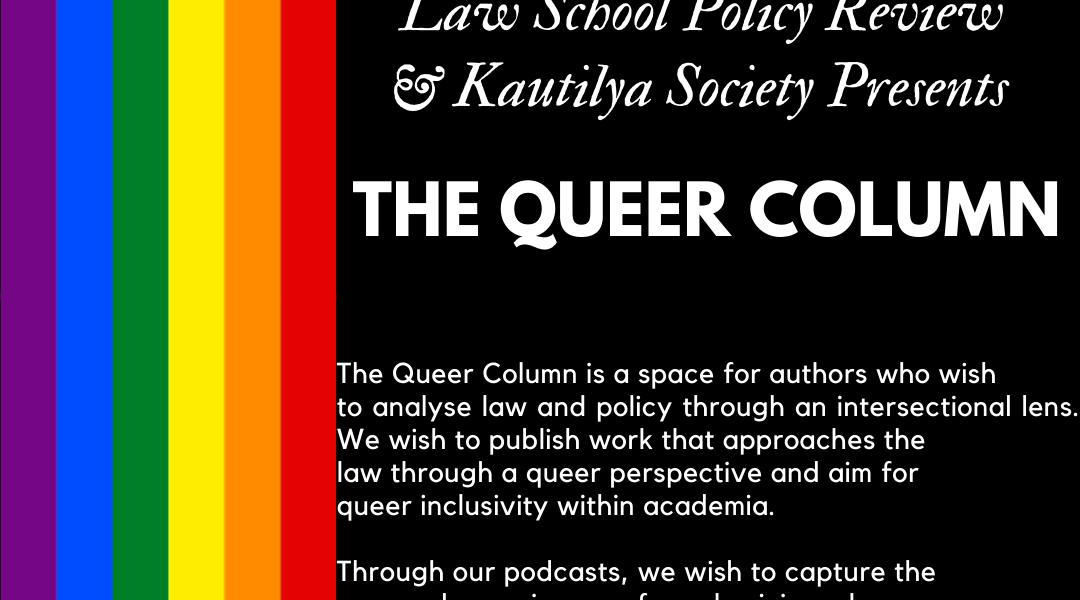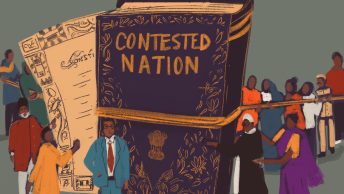About LSPR
LSPR is an online Law and Policy platform run by Kautilya Society from the National Law School of India University, Bangalore, under the aegis of Vidhi Centre for Legal Policy. We aim to use our legal expertise and analytical skills to present novel arguments on domestic and international issues that affect our daily lives.
Our blog has featured guest articles from prominent individuals like Mr. Basil Oberholzer (Legislator, Switzerland), Prof. Mary Lawlor (U.N. Special Rapporteur), Dr. Aparna Mathur (former Senior Economist at the Council of Economic Advisers, The White House), Mr. Vijay Gokhale (former Foreign Secretary of India), Prof. Kent Roach (Professor & Prichard Wilson Chair in Law and Public Policy at the University of Toronto’s Faculty of Law), and Dr. Elina Steinerte (Vice Chair of the Working Group on Arbitrary Detentions, OHCHR). Additionally, we regularly publish articles written by students at NLSIU and other universities/colleges across India.
We are frequently cited across a number of platforms and academic journals in India and abroad, such as The Diplomat, The Print, Firstpost, Vice, Voelkerrechtsblog, SCC Online, Mondaq, Modern Diplomacy, Independent Australia, Social Change Journal and The Indian Journal of Law and Technology. Our articles have been cross-posted on multiple platforms, such as LiveLaw, and The Eleventh Column. Our content has also been featured on global academic resource compendiums and Legislative notes circulated among Members of the Indian Parliament. As of December 2020, LSPR has published over 300 articles, recording upwards of 3,50,000 views.
About the Queer Column
The Column is supposed to be a platform for authors that seek to analyze law and policy through a queer lens and is meant for pieces that take queer issues and perspectives into account. It has already received contributions from noted writers on queer issues, including Rohin Bhatt and Anish Gawande. We also hosted a podcast interview with Simran Shaikh, a prominent trans rights activist. Any submission broadly dealing with the theme of queer rights and issues would fall within the mandate of this column.
Submission Guidelines
1. The submission should deal with a relevant and contemporaneous issue concerning any area of the law or government policy. Only original content will be accepted. Submissions will be screened for plagiarism.
2. Submissions must be emailed to lawschoolpolicyreview@nls.ac.in in the form of a Microsoft Word document (.docx). The subject of the email should be ‘Submission – Guest Post’. In case of articles on very recent developments which may lose novelty or relevance within days, authors may request an expedited review by adding the word “Expedited” in the subject line.
3. The submission should preferably be between 1,800 to 3,000 words. This stipulation is flexible at the Editors’ discretion in exceptional cases.
4. The body of the email must contain a short bio of the author(s) and the name of the institution that they are affiliated with. Co-authorship of up to three authors is permitted.
5. The submission should contain a title and a short (approximately 50 words) abstract.
6. References must be in the form of hyperlinks linked to keywords and phrases in the body of the submission. Use of footnotes/endnotes should be limited to circumstances where a hyperlink reference is not available. For footnotes/endnotes, the Oxford University Standard for Citation of Legal Authorities (OSCOLA) (4th edition) must be adhered to. Authors are advised to be precise while referencing, such as by hyperlinking the relevant statutes and judgements, and citing the precise provisions and chronology in brackets.
7. Authors are also requested to attach an image to accompany the piece. The Image should be representative of the submission’s topic, area or argument. It should be high quality (upwards of 1000p) with an aspect ratio of 2:1. Please mention the image source in the email for the purpose of giving creator credits.
8. Important: The authors must include a declaration in the body of the mail, as to the bona fides of their submission. A sample declaration to that effect can be: “The article is an original work of the author(s). I/We certify that the intellectual content of this article is the product of my/our own work. No part of this article has been copied from any other source without acknowledgement of the source.“
For any further details or clarifications regarding the blog, visit the LSPR website.







Your article helped me a lot, is there any more related content? Thanks!
Thank you for your sharing. I am worried that I lack creative ideas. It is your article that makes me full of hope. Thank you. But, I have a question, can you help me?
Your point of view caught my eye and was very interesting. Thanks. I have a question for you. https://accounts.binance.com/en-ZA/register?ref=JHQQKNKN
Your article helped me a lot, is there any more related content? Thanks!
Your point of view caught my eye and was very interesting. Thanks. I have a question for you.